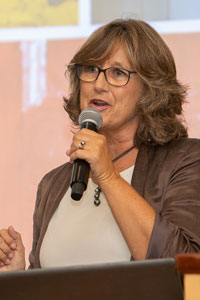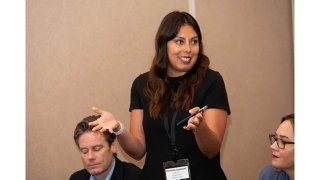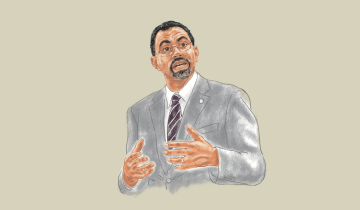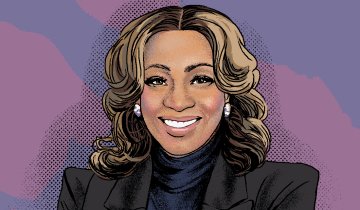As researchers and advocates call for increased equity in schools, administrators and educators are coming to understand just how much effort such cultural shifts can take.
Trudy Arriaga EdD ’93 chairs the education leadership department at California Lutheran University and is the former superintendent of Ventura Unified School District. In her time at Ventura, convincing leaders to embrace equity work started slow with setting the tone and building trust.
The keynote at USC Rossier’s annual Leadership Conference, held this year in late July, Arriaga leveled with the sold-out crowd about what kind of time it takes to get to a satisfying place: Where leaders understand implicit bias, where they can self-reflect, where they are comfortable modeling and nurturing the educators they oversee.
“We did all this over 10 years,” Arriaga said.
Almost 250 people—many of them, alumni of the school’s Educational Leadership doctoral program—attended this year’s Leadership Conference, held at the USC Radisson. The event is co-sponsored by the Dean’s Superintendent Advisory Group, a network of more than 70 sitting superintendents who are USC Rossier alumni.
Arriaga stressed to them at every turn that equity is a process, not an event.
“It’s not enough to say that ‘everyone who wants to take an AP course can do it.’ That’s not equity,” she said. “Equity is giving all students what they need and deserve. Equity is opening a door and escorting a student through. Making sure they have the books. Making sure they have the support they need over the summer. Making sure they have access to any of the technology that’s required.”
Schools aren’t a sports team
Other experts speaking at the Leadership Conference agreed that building a school culture takes time and patience.

“Schools aren’t the NFL where a coach can say, ‘Do it my way or you’re gone,'” said John Gyves MS ’67, EdD ’72. “I believe that the very basis of an effective organizational culture is one that is committed to doing the right thing and not the expedient thing.”
Meg Palisoc ’96, MS ’98, EdD ’13, co-founder of Synergy Academies, added that building a school culture requires that leaders create room for input and conflict.
“People want to be seen, they want to be heard, but they want to be part of a team, and they want to feel fulfilled,” she said.
And for as much progress gets made, leaders must be prepared to revisit the ground they thought they covered, said Hasmik Danielian EdD ’09, the superintendent of Norwalk-La Mirada Unified School District.
“The minute you think you have improved the culture of a department,” she said, “something else pops up.”
Does that mean bringing formal accountability to equity work? Gyves said that people do what’s inspected, not necessarily what’s expected.
“It might be human nature, I don’t know, but if you don’t test it, it won’t get done,” he said.
In an interview at the end of the conference, however, Arriaga suggested eschewing formal accountability for equity, noting that if teachers see equity as “one more thing,” the work won’t be successful. She said it’s better to find ways to get educators to a place where something like examining their own grading practices for inequity is something they actually want to do.
“The results do come if you have patience and you take the time,” she said.
View photos from the 2018 Leadership Conference.




